What is soap?
Soap is the chemical compound which results when oil or fat reacts with alkali (usually caustic soda).

The history of soap.
We can trace soap in the ancient civilizations of Mesopotamia back at 2300bC. where it was used as medicine and a hair product. Soap is introduced in Europe by the Ottomans with the fall of Constantinople. The Ottomans learned about the existence of soap from the Arab tribes of the Arabian desert which they had also concured. Many other tribes such as the Celtics, the Vikings and the Romans used soap although it wasn't widespread.
From the 13th century soap gained much attention especially in Marseille which is the first region to produce soap and its reputation lasts till today. Genoa, Venice, Bari and Castile of Spain are also well known for their soap production.
All the above regions had a rich production of olive oil and a plant called Barilla that its ash produced lye. This new method (combining plant based fat-olive oil- with lye) was estamblished for the next 4-5 centuries till the "recipe"' changed the French chemist Nicolas Leblanc when he discovered a new way of making lye with the ordinary salt.
Why is it better than modern cleaners?
It's widely accepted that soap is the most suitable skin cleanser since it clears the skin's pores by effectively removing dirt, oily substances and dead cells. In contrast with synthetic detergents (washing powder, shampoo, shower gel etc.) that contain harmful chemicals, soap consists pure and natural ingredients.
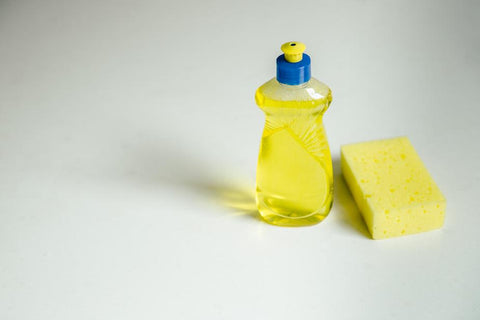
Our method.
Our handmade soap is created by the family bussines of Spitiko, and it's a high quality soap. It is verified and certified by the GENERAL LAB of the STATE.
Each soap is handmade from start to finish and cured for 90 days. During the process boiling is avoided to ensure that glycerin isnt remaved. All soaps are 100% biogradable and without colors or preservatives.
The ingredients.
The olive oil that is used has not been processed and it's pure, natural and clean just like the one we use for eating. What's more, this olive oil is cultivated by the family business Spitiko which makes the soap. Olive oil is a source of vitamine E which has anti-oxidant effect and counterbalances the catastrophic effect of sunlight exposure on skin.
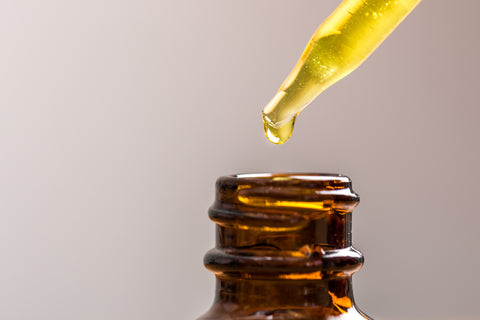
Coconut oil offers a rich foaming experience, provides a powerful cleaning, hydrates the skin and gives the hair the shine it deserves. Coconut is a source of antioxidants and vitamins. Human skin reacts very positively to the beneficial components of coconut, minerals and nutrients, which help in its detoxification. Virgin coconut oil is very rich in antioxidants that penetrate into the deeper layers of the skin protecting it from the formation of free radicals.
Also, coconut oil, thanks to its small molecular structure, allows its rapid absorption by the skin, giving deep hydration to the skin, removing surface dead cells and leaving the skin smooth, soft and radiant. In cosmetology, coconut oil is well known for its anti-aging properties as it has a high content of vitamin E and natural carotene.
Lastly, mild cases of psoriasis and eczema are effectively combated after systematic use of coconut oil. In the body, lauric acid, which is contained in a fairly large percentage in coconut, has been accepted to be quite effective in immune diseases. Many daily skin and hair care cosmetics contain coconut oil for its special nutritionaland antioxidant properties.
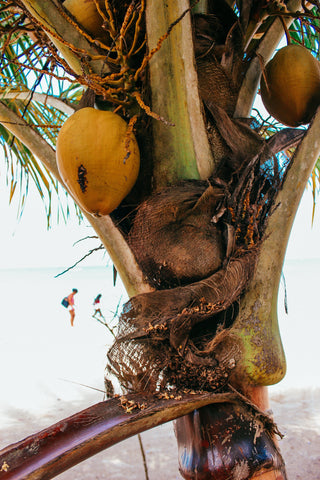
Castor oil: Against dry skin and for acne problems due to the hydration it offers. Nowadays, it is one of the most important oils produced in the world and comes from a plant called Ricin. It has been used for 6000 years and in Herodotus scripts it's mentioned that the Egyptians took care of their external appearance with castor oil. This also explains why its first fruits were found in Egyptian tombs. They used it to treat skin desases while today it is used in cosmetics and creams to stimulate hair growth as well as in anti-aging products. In addition, it is used to treat lichens, abscesses, bruises, dermatitis, sunburn, open uclers and other skin diseases.
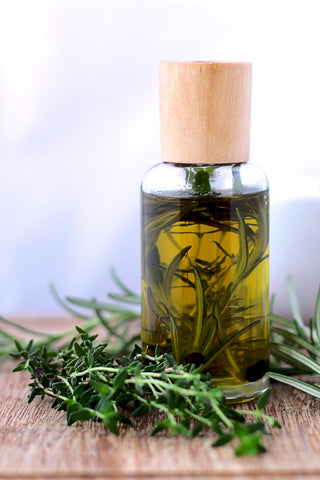
These herbs are harvested by hand one from the natural places where they grow and many of them are cultivated by the family business Spitiko.
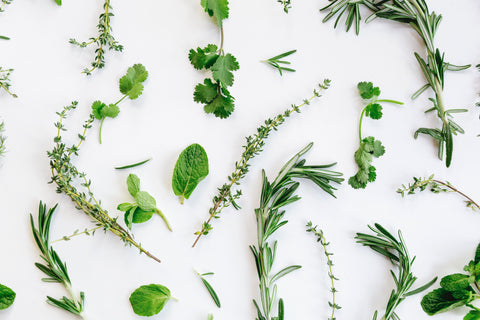
All these pure and natural ingredients result in all soaps being rich in vitamins A, B1, B2, C, D, E, K.